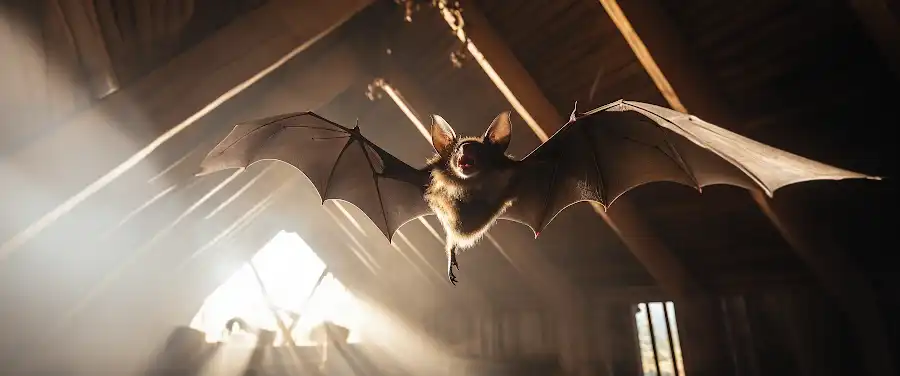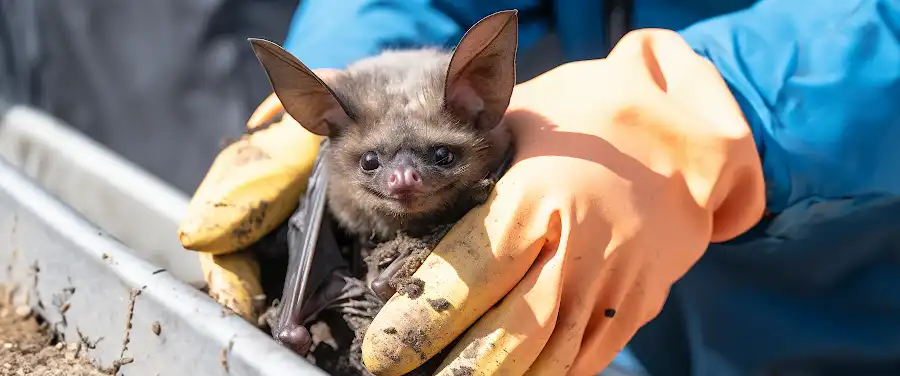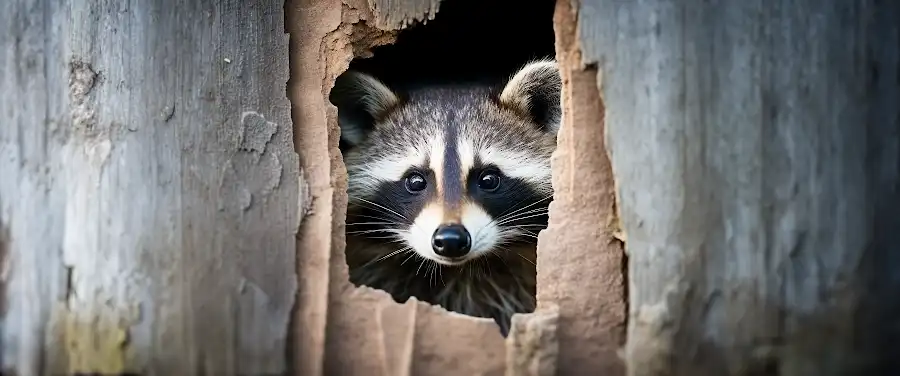
Who could forget the adorable raccoon from classic animated films or the cunning masked bandit from nature documentaries? However, as charming as they may seem, raccoons are not all fun and games. Especially if you own a property, understanding the potential damage linked to a raccoon infestation can save you serious money and several headaches down the road.
Believe it or not, these little critters can cause a whirlwind of damage that’s far from their cute and cuddly image onscreen. Raccoons, with their sharp teeth and claws, nimble fingers, and exceptional adaptability, can wreak havoc on homes, backyards, and commercial spaces. They are notorious property vandals, leaving a trail of destruction that cuts deep into homeowners’ pockets.
From tearing apart your beloved garden, ripping through attic insulation, destroying HVAC systems to possibly spreading diseases – raccoons can significantly damage our living spaces. Their cunning and resourceful nature often makes them hard to deter before the potential damage is done. The key to avoiding costly repairs and health risks lies in understanding raccoon behavior – an intriguing study that uncovers the secrets of their mischief. So, before we get into the nuts and bolts of how raccoons can damage your property, let’s take a closer look at what raccoons truly are in the next section.
How do Raccoons Enter Your Property?
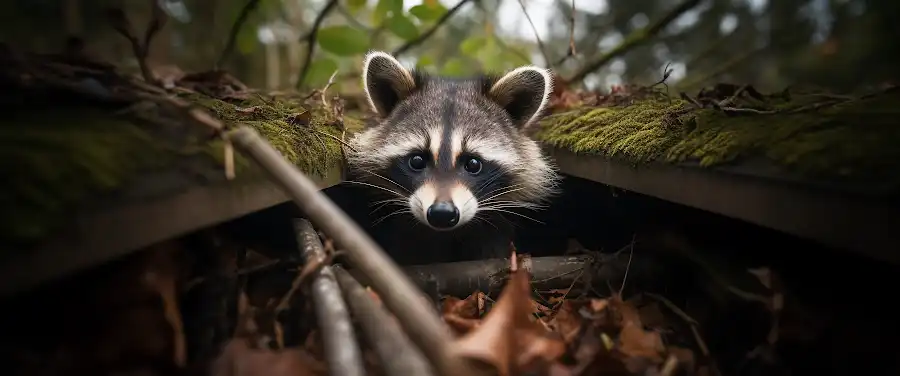
Have you ever thought, “how can raccoons damage your property?” Well, to comprehend the damage they cause, you first need to understand how they intrude into our properties. Crafty and ingenious, raccoons are relatively well-known for their raccoon infiltration tactics and abilities to invade homes and buildings.
One of the commonly known ways is via climbing over our fences or the tangle of branches from the bordering trees. Through this strategy, these seemingly innocent burglars can effortlessly scale your fences, sneak into your property, and reside without paying a dime.
But remember, that’s not the only route for their sneaky invasion. They can also infiltrate our properties through unattended openings, e.g., unclosed windows or broken vents. This happens because, like human beings, raccoons too prefer comfort. They choose the path of least resistance and thus exploit any routes that you might have left unattended.
Now, you might ask, why does your property attract these nocturnal creatures, right? Two primary factors invite raccoons to our properties are – availability of food sources and suitable shelters for nesting.
Your property might be unknowingly offering various kinds of foods that raccoons love. From accessible garbage cans stuffed with food waste to unattended pet food, these can be an open invitation for a raccoon feast. Consequently, a property that is a jackpot of food sources is definitely on their hit list.
Moreover, raccoons are suckers for warmth, especially during their breeding seasons. So, if your property offers snug and warm spots, then it just might become their favorite nesting ground.
And as per stats, more than 20,000 homeowners across the US are victims of property invasions by raccoons each year. So, the question isn’t “how can raccoons damage your property,” but “how can you prevent them from causing damage?”
This narrative smoothly leads us to our subsequent topic “ What Types of Damages do Raccoons Cause?” and holds the answer to prevent your property from raccoon menace. So, gear up to learn more!
What Types of Damages do Raccoons Cause?
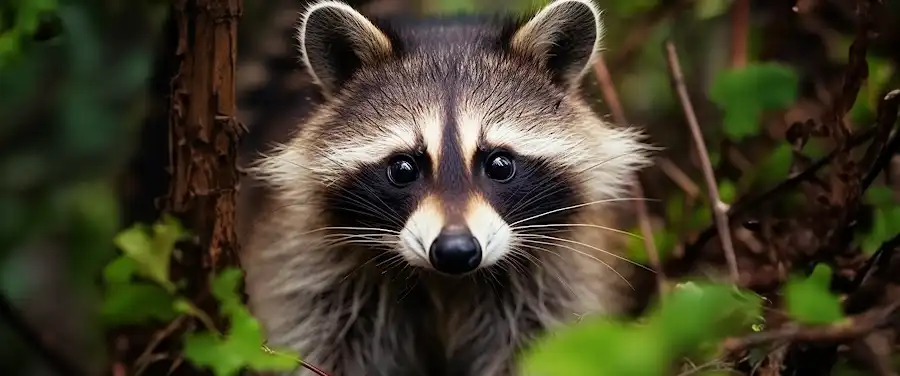
Did you hear something scampering about in your attic last night? Or did you wake up to a messed-up garden? These could be telltale signs of a raccoon infestation. Raccoons, while cute in appearances, can cause significant physical property damage and health hazards.
Let’s delve into each type of damage these masked intruders can cause to your sylvan abode.
Physical Property Damage
Raccoons are infamous for the extensive physical damage they instigate. Here’s how they can turn your peaceful living into a horror show.
Roof and Attic Damages
Raccoons are expert climbers and diggers. They employ their nimble fingers and sharp claws to break through roof materials, leading to substantial roof and attic damages. Besides, they don’t mind setting up a cozy den in your attic, which often results in ruined insulation and woodwork.
Garden and Landscape Desolation
If you’re a passionate gardener, raccoons can be your worst nightmare. They have a knack for rummaging through trash cans and wreaking havoc on gardens and landscapes, leaving a trail of uprooted plants and scattered trash in their wake.
Ruining of Ductwork and Electrical Wiring
Raccoons can also damage your home’s infrastructure. They often chew on ductwork and electrical wiring – an act that can lead to severe consequences such as fires.
Health Hazards Introduced by Raccoons
Raccoon infestations don’t only cause physical damages. They also pose severe health hazards to humans and pets.
Spreading Diseases like Rabies
Raccoons are potential carriers of diseases like rabies. While it might seem unlikely for them to transfer such diseases to humans, the possibility can’t be completely ruled out. According to the Centers for Disease Control and Prevention (CDC), the infection can spread to pets or humans through bites or scratches from an infected raccoon.
Contamination of Property Through Their Feces and Urine
Raccoon feces and urine are also sources of diseases such as Leptospirosis and Raccoon Roundworm. They often relieve themselves at the same spot, and these ‘raccoon latrines’ usually end up becoming hotspots of parasites, posing serious health risks.
In effect, raccoon damages extend beyond mere physical property damages. The contamination and potential disease spread caused by these creatures are equally significant and alarming.
Now that you understand the extent of the damage raccoons can cause, it becomes evident that dealing with these pests urgently is a necessity, not a choice. Yet, you might wonder, just how costly can raccoon damage get? Let’s explore that in the next section.
How Costly Can Raccoon Damage Get?
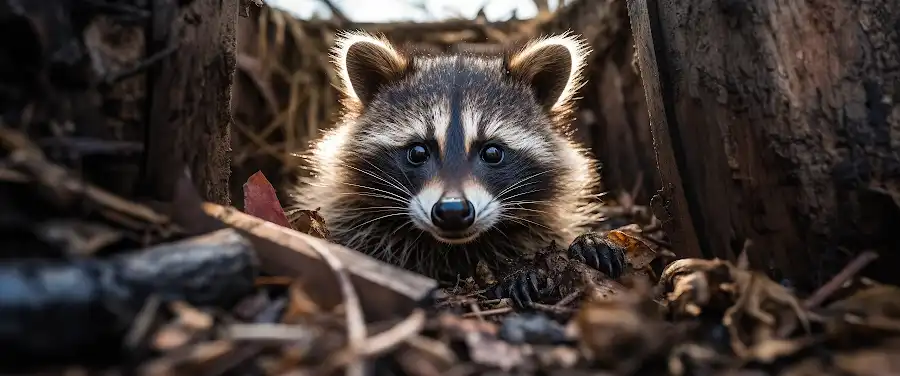
It’s late in the evening, and just as you’re about to drift off to sleep, a loud noise snaps you back to reality. A family of raccoons has decided to take up residence in your attic. The cost associated with this uninvited invasion may give property owners some serious sticker shock. Costs of raccoon damage can vary drastically, depending on what areas of the property they have decided to invade and the duration of their unwanted stay.
The Price of Physical Repairs
Raccoons can cause an array of physical damages that can cost property owners a significant amount. Typical locations for raccoon damage include your attic, roof, and yard. These uninvited guests can tear apart insulation, rip up wiring, and chew through wood. These damages may lead to additional problems such as water leaks and electrical short circuits. According to HomeAdvisor, the average cost for raccoon damages can range anywhere between $300 to $5000, depending on the severity and location of the damage.
Health Risks and Medical Expenses
Did you know that raccoons could also pose severe health risks, leading to potential medical expenses? Raccoons carry a nasty array of diseases, including rabies and roundworms, which can be harmful to humans and pets. The treatment costs for these diseases can skyrocket into the thousands. According to the U.S. Public Health Service, the average cost of a single course of rabies post-exposure treatment can add up to $3000.
Cleaning and Decontamination Charges
The nuisance doesn’t end with the physical damage or the potential health risks. The cleanup process after a raccoon invasion is no small task. Raccoon droppings can contaminate your home, leading to hefty decontamination and cleaning charges. These costs can add up quickly, depending on the amount of contamination. The national average for biohazard cleanup services, such as those required after a raccoon infestation, can range from $500 to $2500 according to HomeAdvisor.
Remember, investing in preventing and mitigating a raccoon intrusion is far cheaper than facing these unexpected costs of raccoon damage.
Conclusion
Raccoons, those small, furry creatures that we often come across in urban areas or our own backyards, pose a much bigger threat than what meets the eye. They are quite notorious for the severe damage they can cause to properties, and this article aims to guide you on understanding how can raccoons damage your property.
Raccoons are typically attracted to human residences due to the abundance of food and potential shelter sites. Yet, their presence isn’t as benign as one might think. Raccoons’ curiosity, combined with their strong and nimble paws, allow them to break into homes, causing considerable harm.
One of the most common issues that homeowners have to contend with is damage to the exterior of their homes. Raccoons have a knack for digging holes and creating entrances into attics or underneath porches. They can tear away at shingles, extract insulation, chew on wooden beams, and even cut through electrical wires, which can lead to power failures and potential fire hazards.
Inside your home, raccoons will search for food, often raiding your kitchen and trash bins. They are known to knock over trash cans, scatter garbage around, and cause a mess in the kitchen by opening cupboards and tearing apart food packages. Such behaviour can lead to significant clean-up efforts, and worst-case scenario, have your kitchen redone due to the extent of destruction.
Raccoons can also cause severe damage to your yard and garden. They have a penchant for digging up lawns in search of grubs and other insects, leaving behind a ruined landscape. Any vegetable gardens might not be spared either, as raccoons enjoy feasting on fruits and vegetables.
But it’s not just physical damage that raccoons can cause. These creatures are carriers of several diseases, including rabies and raccoon roundworm, which poses a health risk to both humans and pets.
Raccoons’ feces and urine, typically left in attic insulation or underneath decks, can contaminate the area, resulting in an unpleasant odor and potential health hazards. Cleaning up after raccoons can be a grueling and costly process, especially in case of an infestation.
Looking at the various ways in which raccoons can cause damage to your property, it’s evident that an appropriate response is necessary to prevent these creatures from turning your residence into their playground. Through this comprehensive guide, learn to combat a raccoon invasion, maintaining the integrity of your property, and ensuring your health and safety.
In conclusion, the saying “prevention is better than cure” can’t be more applicable in the case of raccoons. Home and property owners should take active steps to make their premises less attractive to these pests, effectively combating the havoc they might cause.


